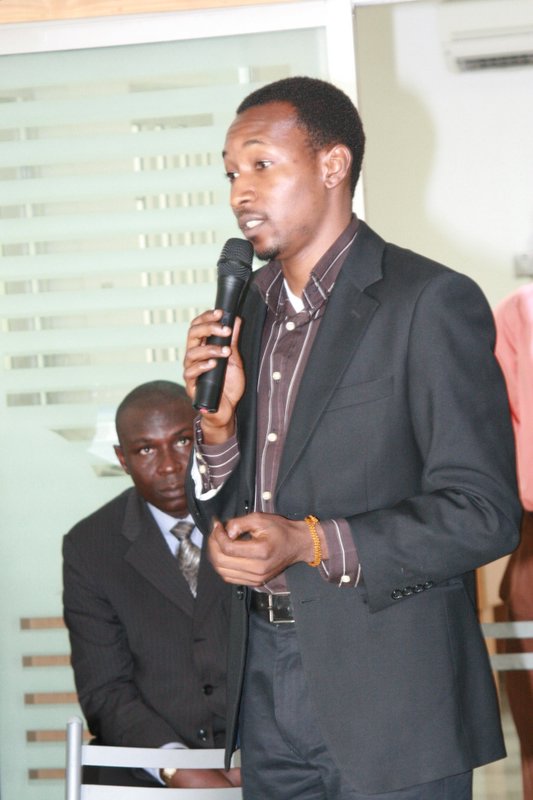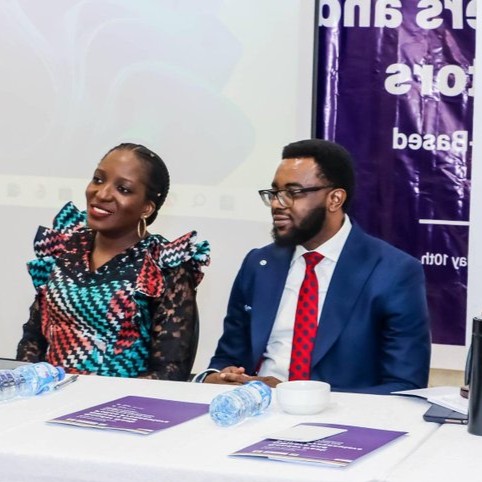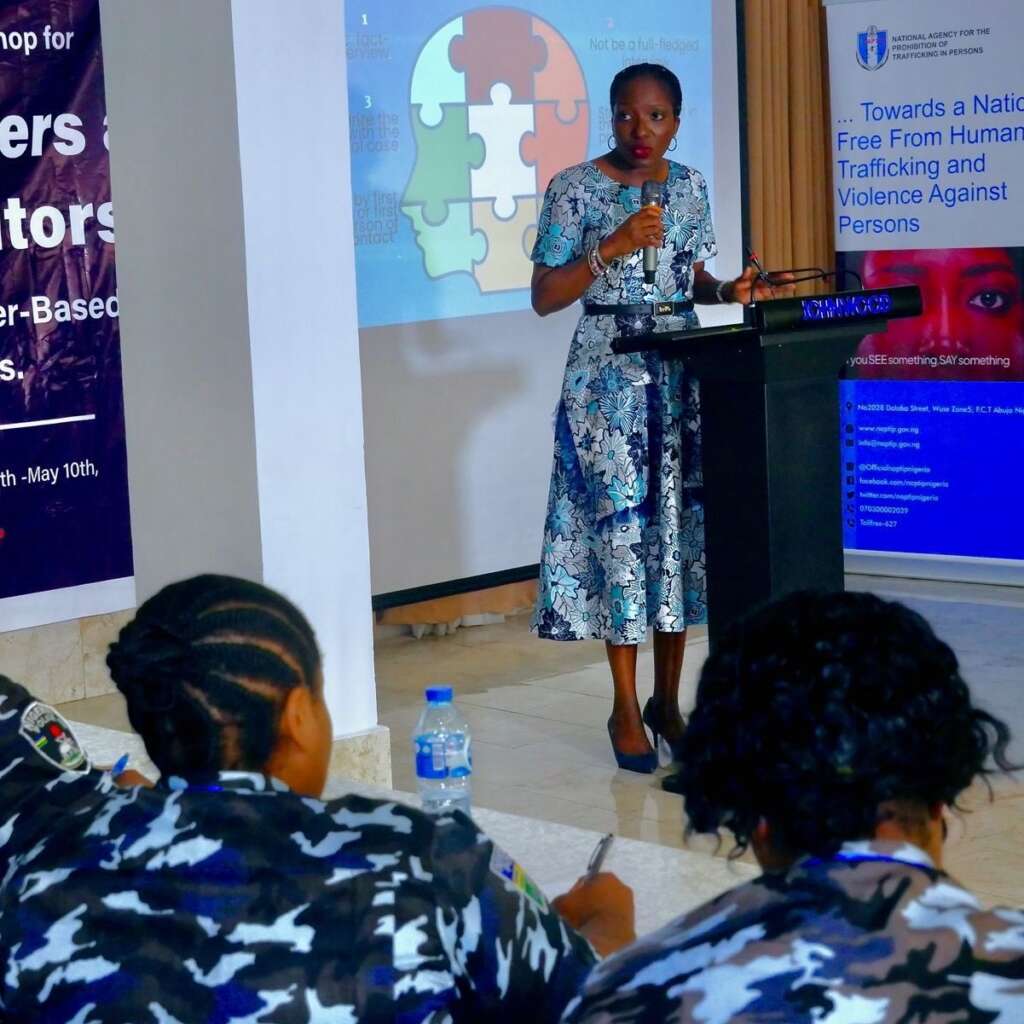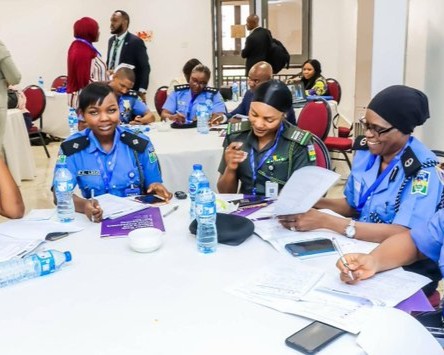JRI was commissioned by the LASG to undertake empirical research on the perception of residents of Lagos State on capital punishment in the state.
JRI worked with the LASG in evaluating its justice sector reform projects and, designing the strategy for deepening the reforms and defining a vision for the future through a Justice Sector validation meeting of stakeholders.
JRI implemented several capacity development programmes for internal and external solicitors of the Nigeria Deposit Insurance Corporation on deposit insurance law.


With support from the DFID/ Security Justice and Growth programme, JRI undertook a comprehensive Institutional Review of the Lagos State Magistrates’ Courts comprising an evaluation of the administrative structure, state of infrastructure and justice delivery performance of Magistrates’ Courts in Lagos State. The report formed the basis for the present administration’s policy initiatives on judicial reforms at the Magistrates’ Courts level.
JRI facilitates continuous training for prosecutors and investigators of the Economic and Financial Crimes Commission and the Independent Corrupt Practices Commission, the two major anti-graft agencies in the country, on aspects such as compliance with International Best Practices and International Human Rights Standards, Networking with similar International agencies and education on preventive approaches to the anti-graft war.
JRI designed and organised symposiums for executives, government officials, professionals, captains of industries, young emerging leaders to speak on salient national issues, especially on governance and their proposals for an ideal Nigeria.
JRI designed and organised the annual seminar workshop for Lagos State Judicial Service Commission Board Members. The workshop aimed to increase the Commission’s operational effectiveness to enable it to fulfil its mandate.


JRI designed and implemented capacity development seminars for judicial officers of State High Court, Federal High Court and the Court of Appeal to keep them abreast of current trends in Deposit Insurance Law and DIS practices worldwide.
JRI designed and conducted a needs assessment survey on Access to Justice in 75 local governments across six states in Nigeria. The purpose of the needs assessment was to document the justice gap and use the data to help define the challenges of access to justice to key stakeholders in the states. The needs assessment report was instrumental in designing the advocacy campaign that followed to bridge the access to justice gap.
JRI established the National Clearinghouse in Abuja, which to date has signed on 500 lawyers who are providing free legal services; has fifteen law firms currently signed on to take up pro-bono cases; 89 pre-trial detainees from Abuja, Kaduna, Osun and Sokoto, who are beneficiaries of the free legal services; 110 cases presently being handled by the clearinghouse with over 28 cases brought to completion since inception.
JRI designed and implemented capacity-building programmes for law enforcement officers (Police and Correctional Officers) to equip them with the knowledge and skillsets to access free legal services for pre-trial detainees and gender based violence victims through the clearinghouse.


JRI drafted and submitted a practice directory to waive court filing fees and fast-track cases emanating from the National Clearinghouse to encourage more lawyers to take up pro bono cases, drastically closing the access to justice gap. The practice directory was submitted to the Chief Judge of three states and the FCT High Court.
JRI designed and implemented the Access to Justice Webinar Series to create an engagement space for Judicial actors, legal practitioners, academia, civil society organisations, community-based organisations and the general public to discuss the challenges of accessing justice and proffering innovative ideas to close the justice gap and creating an enabling environment for pro-bono services in Nigeria.
JRI designed the JRI Law and Policy Webinar Series, a unique event for sharing knowledge, experiences, and information around socio economic issues to address common governance challenges that confronts the country. The goal of the series is to have intellectuals share information, discuss ideas and proffer solutions for some of the critical issues facing the nation with the outcomes from each webinar shaping policy development and government’s interventions in the target sectors.
JRI drafted and submitted a position paper to the National Assembly of the Federal Republic of Nigeria on Judicial Reforms within the context of Judicial Selection and Appointment.


JRI, in partnership with the National Human Rights Commission, UN Women and the Rule of Law Advisor, Office of the Vice President drafted a Force Order for the Nigeria Police Force on the modalities for receiving, recording and responding to SGBV cases. The Force Order (FO), with its legal backing, will be effective in institutionalising norms and practices within the Police to eliminate biases and entrenched attitudes towards SGBV survivors.
JRI published a series of journals, The Appellate Review Journal and the JRI Journal of Law and Policy. The Appellate Review Journal provides a platform for practitioners, jurists and academics to critique landmark decisions of the Appellate Courts and qualitatively debate law and reasoning flowing thereafter. The JRI Journal of Law and Policy documents the contributions of intellectuals on critical socio-economic issues.
JRI, in partnership with UN Women, drafted a standardised training curriculum for the Police to enhance the capacity of police officers, particularly gender desk officers, to handle SGBV incidents effectively. The training curriculum was presented and validated at a two-day validation workshop, a collaborative effort with UN Women, The Police Training Institute and the Training and Development Department of the Nigeria Police Force.
JRI, in partnership with the Training and Development Department of the Nigeria Police Force, trained Gender Desk Officers from the 36 State Commands and Police Divisions. Each police division got a copy of the simplified Force Order to serve as a guide when responding to SGBV cases in police stations.


JRI provided technical support to the FCT-SGBV Response Team to improve their processes and practices. The support included on-the-job training and mentorship for the team to acquire the requisite skills to perform optimally. The on-the-job mentorship ensured the team could collect useable data that informed better processes and practices, allowing for more effective coordination and care management for SGBV survivors.
